
A Good Side-Story…
We’ve all been there . The show or production which won our hearts, ignites intensified hope over news of a sequel or spin-off in the making, hype is sparked online and by word of mouth and then when we act will then receive the actual final product, it is often with mixed-results.
‘ Ashin: Kingdom Of The North’ could’ve easily gone in either of these directions. An official spin-off by original director Kim Sung Hoon and screenwriter Kim Eun Hee of the hit zombie period-series ‘ Kingdom’, ‘ Ashin: Kingdom Of The North’ had a lot of excitement and worry by watchers around the delivered result of a whole production focusing on a side character only shown briefly at the end of the second season.
As a character, the special is quick to cut short to the chase about her past without feeling disregarded or predominating screen time. The daughter of a secret spy who is devoted to Joseon in a border village, Ashin’s revenge becomes more prominent as the story plays out and takes her down many wrong paths. It was intriguing to see how the production could balance out between actually developing Ashin as more than a one-dimensional shell, by duelling this onscreen tale with the threat of the zombie outbreak beginning to take root. Yet viewers should not worry as the production balances out the two storylines as two sides of the same coin; different, yet helping to interchangeably motivate the events of one another as the production progresses.
As this was shown from Ashin’s view of the world at times, it was intriguing to wonder whether any original characters from ‘ Kingdom’ would pop up in the storyline. Sure enough, actor Park Byung Eun took a fairly central role again as Min Chi Rok, the heroic inspector general from the main storyline of ‘ Kingdom’. Intriguingly unlike in ‘ Kingdom’ and as prior events to the main storyline it was fairly astounding to see Chi Rok in a more antagonistic light. Whilst ‘ Ashin: Kingdom of North’ was merely the necessary foreground in order to establish the titular character properly before later seasons and there is still a lot of potential with understanding Chi Rok’s motives, it would have been equally interesting to invested a little bit of side time here within understanding Chi Rok’s shift from villainous to righteousness between the two storylines.
Of course any critique of this production would not be complete without mentioning the brilliance of Jun Ji Hyun as Ashin, as well of course younger actress Kim Shi Ah as Ashin’s younger-self. However , Ashin's character in this special episode doesn’t have a lot of dialogue opportunities. It is understandable this is meant to reflect Ashin’s sense of character, and Ji Hyun is really good with the source material ( even without as many speaking opportunities), but this is certainly a more critical point to note.
‘ Ashin; Kingdom Of The North’ was an outstanding move by the director and screenwriter to establish and bring to life Ashin as an individual in her own right, without straying away from the violent, historical or political undertones of past seasons. Although the storyline sometimes wobbled underneath the problem of with scenes over the long duration time, drawing away from the more thrilling adrenaline-infused rush of action shots, the screenwriter was by no means a mess. The special intensifies the warring troubles of political instability amongst the people, a spine-tingling soundtrack accompanied by beautiful cinematography, historically accurate onscreen costumes and dialogue that is further captivated by the brilliant performances of the main cast. A good watch.
Vond je deze recentie nuttig?
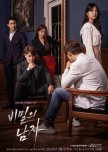
A Laughable and a Hare-Brained Makjang...
“A Man in a veil” is the epitome of the infamously coined “ Makjang” by South-Koreans ( used to describe plot concepts which are equivalent to the reputation of telenovelas - so ridiculous, cliche and unrealistic that they often fall into the “ so bad, it’s good” category). From ‘ pseudoscience’, ‘ revenge’ to ‘ lost family’ cliches, “ A Man in a veil” throws in all the towels to be a ridiculous hundred and five-episode extravaganza of wooden acting , fairly one-dimensional characters and tropes.“ A Man in a Veil ” takes on the typical revenge cliche of a man with an intellectual disability called Tae Poong ( Kang Eun Tak) whose destiny is gradually torn apart by two sisters; the intrinsically “selfish” Yu Ra ( Lee Chae Young) who begins to manipulate and blackmail him throughout the series, and the “ kind-hearted” sister Yu Jung ( Uhm Hyun Kyung) who holds strong feelings towards him. His life changes forever, however, when a tragedy causes a second chance for Tae Poong to extract his revenge on everyone who has wronged him.
Whilst the revenge cliche was possibly the most intriguing of the show, “ A Man in a Veil” didn’t truly use this to either flesh-out nor deepen the characters, with Tae Poong often feeling more like a “ stock male lead” with little interest for viewers or emotional depth behind his actions. ( Apart from Eun Tak’s random screaming matches and “pained “ facial expressions when it was necessary for the “ plot”). Arguably, Yu Jung did have a little more depth than Tae Poong, due to her complicated feelings for both him and the second male lead Seo Jun ( Lee Shi Kang), her later tragedy and motivation towards getting back at her sister and a family revelation as well. On the other hand, considering the emotional and traumatic depth in reality towards this tragic event which took place in the series, Yu Jung not mentioning this again after it was necessary for the “ story” felt both lacklustre and poorly- written in the grand scheme of character- writing.
Ironically , one of the worst-written characters in the show must go towards Yu Ra as both an individual and an antagonist . It was evident from the get-go that screenwriter Lee Jung Dae wasn’t attending to make Yu Ra a “ sympathetic villain”” - she’s inherently a selfish and despicable character who later becomes deluded by her own abilities to outwit others. On the other hand, it’s hard to really understand what makes Yu Ra actually tick or the actual motives behind her thoughts, apart from not wanting to “ be in poverty” and “ survive”. To make matters worse, we very rarely got to see Yu Ra as an actual human being. The several moments which could have offered genuine intrigue into Yu Ra as a character ( such as her past and later events) were entirely written-off to make Yu Ra’s schemes more and more unbelievably ridiculous by each episode. ( Counterpart to the other antagonistic character played by Kim Hee Jung as Joo Hwa Yeon.)
This certainly leads the storyline to take on a dragging and lacklustre focus between the three primary storylines; Tae Poong and his revenge, Yu Ra’s attempt to climb-up the social ladder and the dirty secrets of their associates ( including Yu Jung and Yu Ra’s parents as well as Seo Jun’s mother and father). Whilst arguably each storyline did have some attraction in how they played out, before even the halfway point, the show began to draw itself too much away from the main protagonist’s own ventures into other characters’ lacklustre storylines, which took away many of the twists which were supposed to be “ emotional” and “ shocking” for viewers with little delivering impact for viewers .
Consequently the plot inconsistencies of the show were beyond incoherent - CCTV cameras, criminal investigations and actual forensics are nonexistent , the characters are ridiculously dumb enough to make the same mistakes over and over in favour of “ plot motivation” and later “relevant twists” completely contradict earlier statements made in the show.
Perhaps it is due to the fact that the show is so detached from coherent plot line , or, the fact that the stylist’s choices are so outdated ( including product placement) helps the show to seem older , but, “A Man In A Veil” is a perfect example of a show more than a decade behind recent trends - the characters have no depth or actual intrigue for viewers , the storyline is filled to the brim with more and more ridiculous cliches, and even the ending felt a little lacklustre. ( In particular after building more than 80 episodes of Tae Poong seeking revenge only to be “ miraculously solved” with little sense of conflict or poetic justice for our main lead . )It’s fair to say that “ A Man in a veil” is a typical makjang- certainly not worth watching if you’re looking for something deep, but so laughable, it keeps you watching to see what hare-brained scheme the scriptwriter tried to come up with next.
Vond je deze recentie nuttig?
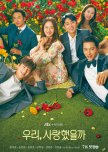
Was It Love , Or A Waste of Time?
As Korean romance dramas go, “ Was it Love?” certainly wasn’t one of the worst Korean dramas out there, with some intriguing themes tackled such as motherhood, parentage and abortion as well.What is fair to say, however, is that “ Was it Love?” had so many opportunities throughout the drama to play upon its own cliches of the mysterious father, particularly through Noh Ae-jung ( Song Ji hyo)’s daughter, Ha-nee ( Uhm Chae-young )’s being allowed to bond with her potential fathers in equal manners such as ;
famous actor Ryu Jin ( Song Jong ho), financial head Koo Pa-do ( Kim Moon Joon) , P.E. teacher Oh Yeon-woo ( Koo Ja- Sung) and novelist Oh Dae- Oh ( Son Ho Jun) respectfully throughout the entirety of the show.
Although Song Ji hyo did captivate some of the elements of her character’s determination upon screen at times ( in addition to the scriptwriting ), her acting at times seemed a little wooden and thus didn’t help in making Ae-Jung’s personality seem often very lacklustre.
Of course that’s not to say that Ae- Jung was quintessentially a terrible character as there is no denying that Ae-Jung did seem to share genuine love and affection for both her daughter and her mother Choi Hyang-ja ( Kim Mi Kyung) throughout the drama . On the other hand, “ Was it Love?” ‘s biggest flaw soon became apparent by the scriptwriters’ decision to cram-in as much plot focus upon the aspects of Ae- Jung’s seemingly lingering “chemical” relationships with each of the respected male leads of the drama. Although it was undeniable that most of the actors were fairly brilliant in their respected roles, there were too many cliches which brought lacking emphasis upon characters such as Pa-do ( especially with the whole doppelgänger trope) and Yeon- woo as plot devices , rather than as individuals over the course of the drama.
As a romance drama there isn’t anything entirely wrong with this format, however, in making this decision, there was little actual focus upon Ae- Jung’s development as a character as well upon her familial bond with her daughter.
Although an undeniable driving factor of the series was the actual question of Ha- nee’s biological father and the miscommunication between daughter and mother adding to the final climax , it’s fair to say that the ending revelation could not help but severely highlight and question a lot of Ae-Jung’s decisions.
It’s natural to see what Ae-Jung was trying to do in shielding the truth from Ha- nee; she had raised her for nearly fourteen years a as a single parent and Ha- nee finding out the truth about her father would threaten their relationship a lot. On the other hand what did not seem particularly fair was that it hadn’t crossed Ae- Jung’s mind even when her mother mentioned Ha-nee’s interest in finding out more about her father, to at least sit down and give Ha- nee, the respect and liberty to ask about the matter . This was initially ( regardless of events ) quite a selfish act committed by Ae-Jung , both for Ha-nee as well as her father, who is later revealed to be oblivious to the fact that he even had a daughter in the first place.
This is also what bothered me a little but about Ha-nee’s sudden shift from intrigue and wonder over her father to suddenly acting hostile the minute she actually finds out who he is. Whilst I can understand Ha- nee acting this way to some extent when she learns of some of the events and hardships her mother was put through, it just didn’t add up to Ha-nee’s character by not having a moment of actual intrigue or an attempt to get to know him more affectionately, even once in the show ( without being forced of course). If the plot tropes and cliches weren’t bad enough, the cliche of Ha- nee’s ending is even stranger with little actual necessity or purpose apart from wanting to give viewers a “ happy ending”.
Overall “ Was it Love?” is a perfect example of a “ throwaway drama”; easy to binge- watch without a second thought, but certainly lacking within memorability, characters and plot development as a consequence of cliches and tropes adding little value to the actual drama. Whilst enjoyable with certain comical elements, the show was certainly a waste of time if you’re looking for something to actually invest in.
Vond je deze recentie nuttig?
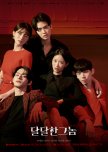
Sinking Your Teeth Into " The Sweet Blood"; Too “Sickly” For Its Own Good?...
Undeniably an intriguing concept, “ The Sweet Blood” did have the potential to be a fairly well-rounded web series with original characters and storyline. However, this series simply becomes its own worst enemy with poor-production value in screenwriting, sets and acting .
The acting quality in " The Sweet Blood" is questionable to say the least. It was not unwatchable per say, however , there were certainly dire line deliverances worryingly throughout the series by the main cast consisting of Chae Yun, Eo Jun and Ji Woong. ( As well as the ridiculous amount of makeup plastered onto Ji Woong’s face in scenes.)
By default, Yeon Seo as a character should have been a well-written female lead. She could have had a profound backstory, a likeable personality as well as having conflicted beliefs as someone stuck between human and supernatural societies. Instead, " The Sweet Blood" reduced Yeon Seo to nothing more than an angst-ridden teenager (rather than a seeming immortal), self-inserted into a formulaic love triangle ( square if you wish to include Do Hyun Je) with lacking character development. Even a potentially intriguing side-storyline (regarding Yeon Seo’s relationship with her mother), was disregarded nearly entirely from the series.
Then there’s our main lead Meo Ru; the foundation of Yeon Seo’s love triangle. Throughout the series, Meo Ru rarely seems to ineffably be unfazed by the supernatural, he is absent-minded enough to put himself in danger countless times for the sake of "plot" (despite Yeon Seo’s warnings ) and seems unable to develop emotionally as a consequence. Even more intriguing elements to his character such as his visions and his actual involvement as " The One" were often half- heartedly thrown in near the ending of the series . (And even then, rarely had an active role.)
Following on from Meo Ru, was Yoon Chi Woo; the second male lead of the series. Yeon Seo’s old flame and a dangerous vampire who seemingly poses both a threat to Meo Ru as well as being "unpredictable", Chi Woo was undeniably an intriguing character. However, his greatest flaw came through his half-baked romance with Yeon Seo.
Despite the constant references towards Yeon Seo and Chi Woo’s " days together", there was no sense of actual significance of this relationship either through flashbacks, memories or accounts by either character. This also contributed to the lackadaisical vampire lore of the web series by the adequate detail with both characters’ backstories also.
Sadly, not even the side characters could make up for this with many side characters being thrown in as " quick fixes "for tension, rather than being entirely necessary for the plot.Do Hyun Je ( Cho Eun Ho), the Vatican’s werewolf ( not even kidding with this one) who ( for reasons unknown to most characters and viewers)seemed to like Yeon Seo. ( Admittedly, there was an arguable reason, but the revelation felt more like a rushed solution to erase the " fourth component for a love square", than actually an intriguing part of his character.) Then there’s Yeon Seo’s best-friend Kim Su Jeong ( Yoon Da Young) who is oblivious for a major part of the series to the supernatural, is dragged ineffably into supernatural scenarios for plot development and her later reactions are just lazily-written .
Adding to this, the seeming " threat" of Yeon Seo’s father as a "big bad" near the end of the series, should have been a decisive story moment , but instead, was anticlimactic and lacked development. ( Despite his intriguing paternal bond by blood *no pun intended* with Yeon Seo.) The ending wasn’t bad per say, but it was obviously a quick and thrown-in solution without any sense of completion or at least a cliffhanger to finally wrap up the web series .
So, what’s the best way to describe this web series and is it actually worth watching ? This entirely depends what you’re looking for in a web series. A quick binge-watch for something which is trope-filled and a time saver from a 16-hour drama? Then, yes. A well-written, original web series with good acting and casting decisions alongside an engaging OST? Then, it is advisable to look elsewhere because " The Sweet Blood" isn’t it.
Vond je deze recentie nuttig?
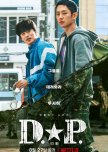
Taking Away The Romanticism Of The South-Korean Militia…
Military enlistment is a topic which is often swept under the carpet in South-Korean culture, or romanticised in stories near the finale as part of the “ long wait” between lovers at the end of a drama storyline . ( The drama itself presenting a parody of this scene when a young woman causes a scene to promote her “ love” for her boyfriend enrolling only to present a stark contrast in the circumstances afterwards .)
PD and screenwriter Han Jun Hee as well as screenwriter Kim Bo Tong takes an anti-romantic ‘Fullmetal Jacket’ - style approach to the short series ‘ D.P’ The enlisted men alongside Jun Ho are viewed as nothing more that batch coded weapons and those who leave their side are viewed as merely loose-cannons without names or dignity . Yet the drama is unsurprisingly without director Han Jun Hee’s wry sense of comedy either- sardonic and satirical rather than sweet and slapstick, but woven well into the introduction of characters and the narrative.
The cast undeniably helped to make the storyline come to life. Actor Jung Jae In did a brilliant job ( like the rest of the cast) as main lead Jun Ho ( Jung Hae In). A troubled youth who shares his own conflicts and troubles before enlisting in the army and being forced into the military defect arrest team , Jun Ho becomes morally conflicted over the reasons why men leave the army for various personal reasons and the dire corruption of the authorities. From romantic heroism turned tragic to bittersweet realism, the duller and stark cinematography presents a harsher and prominent message to viewers about these stories shown per episode .
On a more critical note the drama isn’t without its flaws either. Whilst the messages are prominent as a criticism against the authorities and corruption ‘ D.P.’ began falling short especially after the 3/4 mark. The acting notably did degrade slightly as well as delivered line deliverances, and the pacing began to struggle Adding to the dilemma was defining more about Jun Ho’s calling of identity from given inferences in more vivid detail to explain his ideologies, as well as during the last few episodes. On the other hand the ending was certainly unexpected-profound and helping to define the key messages of the drama, but will likely leave viewers with their jaws dropping.
Overall a fairly good watch though admittedly not for the faint hearted . The pacing and more definitive character writing were sadly slight letdowns for this drama but ‘ D.P’ does make up for it with a profound and critique about the South-Korean military enlistment scheme, as well as using a catchy OST and moody cinematography to present these messages clearly .
Vond je deze recentie nuttig?
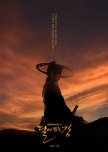
Bloodshed And History ; Where To Begin With One Of The Most Controversial Dramas Of 2021...
Before getting on to analysing the main storyline and characters of the series as individuals , it is probably most prominent to address two main controversies which ultimately affected character and production in the drama. First, dropping initial actor Ji Soo with his allegations in favour of Na In Woo in episode 7 ( subverting On Dal’s personality ) and then having to reshoot scenes eventually with Na In Woo and releasing the earlier episodes after the initial finale . Whilst a lot of diehard advocates of the show will probably sugarcoat this by stating that “ it didn’t stop the storyline from being good” or “ Kim So Hyun made up for this”, it is important to note that even in early episodes, the series did often feel hampered by several incoherent screenwriting choices.A notable example of poor scriptwriting occurs by the usage of contemporary vernacular in the show’s main setting of the Goguryeo era (37BC – 668AD). Although admittedly it would be equally ridiculous for the show to even attempt speaking in an outdated and incomprehensible tongue for the whole course of the series, it felt laughable when a palace guard or a member of the royal court suddenly sprouted demotic Korean phrases that would not be out of place in an Internet cafe in Seoul today. Of course, it is understandable that the drama does want to resonate with modern audiences, and as a fictionalised story, tweaking history can present an interesting depiction of the director and screenwriter’s thoughts. However, instead of actually bothering to take the time to present authenticity through discourse exchanges, some of the spoken lines of the series felt awkwardly mismatched with its time and setting. ( Though admittedly this did improve in later episodes.)
As a consequence, this often took away from the more intriguing portrayal of the historical costumes , and the storyline ‘s main focus on a warring nation torn by clans. The premise is fairly intriguing by its initial setup of the amnesiac heroine Princess Pyeonggang ( Kim So-hyun) defying her fate , falling in love with “the fool” On Dal ( Ji Soo/ Na In Woo) and of course taking its origins from a modern spin on the traditional folktale based on the 2010 novel Princess Pyeonggang (written by Choi Sa-gyu).
Nevertheless, Kim So-Hyun is able to brilliantly capture Pyeonggang ( or “ Ga Jin”) through her individual performance , however, something which should initially be addressed as an example of questionable miscasting, was the choice also to use So-Hyun to play her character’s mother, Queen Yeon during flashbacks in early episodes. ( Leading to a lot of confusion for first-time viewers of the show.)
In addition to this whilst it is hard to fault Kim So Hyun’s performance, her character felt oddly-written. When we are first introduced to Ga Jin she is a ‘’blank slate’’ due to not possessing defining memories of her past. However, the main issue towards Pyeonggang is due to her character development as the story progresses. We were told that Pyeonggang grew up as a top assassin Yeom Ga-jin, which implied that she should not only be skilled in martial arts, but also would be able to be quick-thinking in dire situations. Yet often during key events in the series, Ga Jin/ Pyeonggang was often reckless and foolish. Near the ending, admittedly Pyeonggang did resort back to her resilient and tough role as the heroine, however, the development in between deeply questioned how such a fierce, decisive and brave warrior from the flash-forward during the opening montage matched up with the character who seemed to unfold over the course of the series in front of viewers’ eyes.
This moves us onto the biggest elephant in the room, On Dal. Being played by two different actors, there is the most evident problem of how to assess this character from the two difference performances upon the archetype of the ‘ kind-hearted and foolish male lead’.
Ji Soo seemed to capture the ‘ fool’ as benign and goofy, adding a notably fractious and eccentric undertone to On Dal as a character. However, Na In Woo took a less childish approach to On Dal’s constant grins and confused tone , through dumbstruck expressions for the latter part of the series before taking on a more serious tone towards the character (as he is becomes a more revered individual due to the circumstances ). Regardless, On Dal acts as a major asset within Pyeonggang’s journey of self discovery and their fairly sweet romance tale by bringing out her personality and as a tie to her complicated past. However, the problem still remains not merely by the different performances of On Dal for viewers , but trying to flesh-out On-Dal as a sentient character.
In fact, this was an evident problem between how the show dedicated time to sketching out the drama’s personae , but it’s hard to really “ grasp” or feel intricate emotional attachment towards most of them. The early episodes of the drama enjoyed using the stock side characters of the village as comic relief, before in the second half and the time-skip bringing in a multitude of either newly introduced or previously mentioned antagonists and characters . (Whilst many of these characters and villains were incredibly interesting , they often struggled to have decent screen time in order to develop out of their one-dimensional shell.)
Perhaps the one character in the show who was surprisingly quite intriguing in the beginning of the series was General Go Geon ( Lee Ji Hoon). As it may seem evident through tropes, Go Geon naturally becomes the ‘ second love interest’ through his ‘ complicated’ feelings with Ga-Jin. However, whilst Go Geon did surprisingly possess the potential role as an an intriguingly motivated anti-hero in the series, his role ( without any spoilers) was sadly blanked out due to poor character development.
The ending was predictable to say the least and arguably anticlimactic by straying away from the actual conclusion of the renowned tale. Of course, this is a fictionalised drama and having an artistic license is not inherently wrong. However, the ending may cause a little bit of head scratching for viewers by ( the change of actors for On Dal aside) the entire flashforward , weather and certain events being subverted entirely. In addition to this, the ending felt more like a ” quick-fix”, than being built upon strong foundations by the slow-paced storyline (in parts ) diminishing often the more intriguing elements of the drama.
So, is ” A Moon Where The River Rises” being unfairly criticised, or is it genuinely a good watch? Controversies aside, whilst the aesthetic cinematography, a high-budget production value ( especially remaining apparent with its CGI and beautiful outfits) and Kim So Hyun ’s brilliant performance remained compelling enticements towards watching the drama, ” River Where The Moon Rises" suffered ultimately from whimsical screenwriting. Intriguing characters and villains often felt half-baked, the overused tropes in the first-half of the series often made the second-half struggle to catch-up with the more intriguing elements of the storyline ( resulting in slow-pacing also ) and the ending felt rushed to say the least. Ultimately, ” River Where The Moon Rises” isn’t a dire or terrible drama and certainly does have some redeemable qualities , however, there are better sageuks ( historical dramas) out there with stronger plots, more three-dimensional characters and well-written endings also.
Vond je deze recentie nuttig?
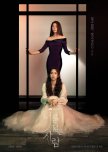
Deze recentie kan spoilers bevatten
A Slow Descent Into Hell…
Life is rarely a straightforward and narrow road and for artist Hee Joo (Hyun-Jung Go), her road seems to be an incessant path of bumps, twists and turns as she gradually begins her descent into “ Hell”.
The storyline places emphasis upon unravelling questions towards Hee Joo’s fall from grace.The female lead seems to have all ; she had a rough start but now has two beautiful children, a doting husband, a lovely home, and a successful art career, yet something still seems to haunt the female lead . Yet when a terrible incident happens to her daughter Ri-Sa (Su-an Kim), Hee-Joo is shocked to end up meeting someone she used to know in her past Hae Won (Shin Hyon Bin); a ghost of her former lively-self. Hee Joo and Hae Won’s encounter marks the beginning of a hellish journey that will test and trial everything that Hee-Joo believes she already knows…
Adapted to the small screen by director Im Hyun Wook ( ‘ People You May Know’) and screenwriter Yoo Bo Ra ( ‘ Just Between Lovers’, ‘ Snowy Road’) from Jung So Hyeon’s novel ‘ Someone Who Looks Like You’ , ‘ Reflection Of You’ takes a noticeably darker and bittersweet tone than most melodrama revenge-tales, and a slow-burn plot which will test viewers’ patience spans to the maximum.
Of course this isn’t to say that there isn’t intrigue for viewers surrounding the plot premise or initial start; it wastes no time hooking audiences ( shown as a literal metaphor through the fishing line thrown into water in the first episode) and adds a few little threads to keep the series interesting; the mysterious and unconscious John Doe visited by Hee Joo’s husband who later disappears, the tension between Hee Joo and her affluent , aloof mother-in-law , Hae Won’s use of an alias as well as her evident connection to Hee Joo .
The acting front of the series was admittedly fairly good. Whilst there were a few questionable line deliverances at times it’s undeniable that our main cast really shone throughout . Hyun-Jung Go delivered a brilliant performance as her complicated onscreen persona Hee-Joo whilst Shin Hyon Bin would often steal the limelight as Hae Won ; the chillingly vengeful, enigmatic and mysteriously paradoxical character who acted as the main foil and plot drive throughout ‘ Reflection Of You’.
Yet amongst screenwriter Yoo Bo Ra’s smoke and mirrors tactic through using mysterious subplots and haunting scenes to shield viewers from the actual truth of the past and events to follow, ‘ Reflection Of You’ isn’t without its more evident loose threads either.
The series is undeniably slow-paced. Whilst this is a necessary tactic for keeping the storyline afloat and the input of cliffhangers during most episodes helped the drama to gradually reach its apex , ‘ Reflection of You ‘ could often ward off viewers and potential newcomers. The series would often become bogged down with its arbitrary soap-opera trope-worthy moments, occasional out-of-place transitions and use of over-the-top dialogue and line deliverances. Whilst it does present a form of ( intentional or unintentional ) dramatic irony in the lavish and melodramatic world of ‘ Reflection Of You’, it could often create a sporadic and disjointed plot with many loose plot ends sticking out like a saw thumb by the ending of the series.
The finale of ‘ Reflection Of You’ undeniably divided audiences; a final conclusion towards the twisted world of the series, but leaving a lot of unanswered questions and logic on the sideline with main characters Hae-Won and Hee Joo’s arcs feeling underdeveloped .
So is ‘ Reflection Of You’ actually worth watching or is it a waste of time? ‘ Reflection Of You’ is a drama which will admittedly engage or disengage audiences dependent on expectations. Whilst this is generic situation for a lot of K-dramas, ‘ Reflection Of You’ often finds itself digging its own grave at times by its snail-paced progression and dragging out plot points behind its expiry date . This isn’t to say the series is “ terrible” or “ unwatchable”; the acting is fairly dynamic throughout the series, the plot premise is intriguing and there are some wonderfully-interweaved scenes by director Im Hyun Wook to give viewers goosebumps. However the incompletion of a series which was dragged out for viewers alongside mismatched storyline and plot points, can admittedly lead to some mixed-feelings and uncertainty towards the finished product.
Vond je deze recentie nuttig?
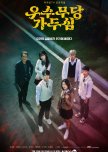
Shaman Girl Ga Doo Shim
21 mensen vonden deze beoordeling nuttig
Teen Spirit With A Shaman Twist…
Let’s be honest. The Great Shaman Ga Doo Shim’ is a verbatim title. ( As there’s not a lot left to the imagination to work out what this drama is about.) Admittedly Park Ho Jin’s drama doesn’t try to brand itself as “ the next Goblin ” or a “ new fantasy phenomenon”. It is a teen “ cutesy” fantasy tale about the supernatural, but often leans more into the realm of “teen angst” with main leads Ga Doo Shim ( Kim Sae Ron) and fellow classmate Na Woo Soo( Nam Da Reum) ‘s journey through high school also. (At the time of writing director Park’s wish for a sequel season to explore more about the characters was confirmed also .)
As a consequence the drama featured an array of intriguing characters. However their ultimate contribution to the storyline and depth admittedly does vary dependent on screen time and the screenwriting also. Kim Sae Ron was fairly dynamic as quiet and mysterious high-schooler Ga Doo Shim. The former child actress carried an ambience of perfect angst, suaveness and longing which was perfectly matched for her role . As a character it was evident that Doo Shim could’ve gone down two possible routes; one-dimensional and unlikeable by being egotistical , or a more well-rounded heroine who has a likeable charm by struggling with her emotions and carrying empathy. ( Fortunately with our female lead it was the former case. )
Doo Shim’s character development was arguably the most pivotal from begrudgingly accepting that she can see ghosts and trying to be “ normal” , to opening up to new friends ( particularly Na Woo Soo) , feelings and understanding that she can use her powers for the greater good. Yet whilst her setbacks do help to make her feel realistically flawed, there are moments surrounding Doo Shim which felt like more of an excuse to “ heighten dramatic tension ” rather develop her character gradually or focus more time upon making Doo Shim feel realistic.
For example whilst Doo Shim’s relationship with her mother Hyo Shim( Bae Hae Seon) did see the typical rocky road between a parent and a daughter, there was a lot of missed opportunities to explore more about their complex bond . It was evident how much Hyo Shim genuinely cared for her daughter, however, Doo Shim and Hyo Shim rarely had opportunities outside of necessary plot to talk about their shared bereavement , feelings or emotions without queuing into comic relief or angst. Perhaps with a sequel season it is wrong to condemn a final verdict over this relationship as “ poorly-written” overall, however, hopefully season two will give more chances to covering this relationship rather than putting it on the back burner.
Then of course there’s our main male lead Na Woo Soo. Nam Da Reum did a great job as the plucky prodigy with a heart of gold . Initially starting off as a plot device in order to awaken Doo Shim’s “ character growth and feelings”, it was refreshing to see Woo Soo leave the realm as the prosaic potential “love interest” and the “ sidekick who is new to this world” to having more complex depth . One particular focal point to exploring Da Reum’s greater sense of altruism as a character came through his unusual friendship with underdog and best friend Kim Il Nam ( Yoon Jung Hoon). However this is also where we hit a major rut with Woo Soo as a character; he displays emotions, but he rarely acts out upon them unless they’re necessary to the storyline.
There was brimming potential to explore a lot more about Woo Soo’s darker side which he did display at points in the drama such as his silent threat to Jo Soo Jung ( Lee Ji Won) after her potential blackmail, as well as his anger at Kim II Nam during the main events of the storyline. When the story covered the major events surrounding Kim II Nam it seemed odd the drama switched Woo Soo’s personality towards being “ mopey yet calm” rather than using this as a golden opportunity to explore more about Woo Soo’s own negative feelings or hero complex, as well as heal the wound between Woo Soo and Doo Shim helping one another through these events.
Yoo Sun Ho’s performance as witty dead high schooler Hyun Soo was pretty delightful. As a character Hyun Soo serves both as an example of surprising comical foil as well as wasted potential also. On one side whilst Hyun Soo does have his more brief yet bittersweet moments surrounding his death and his search for his mother, he did often cool down more heavy scenes with deadpan expressions or annoying Doo Shim. However there was a lot of unexplored ground with Hyun Soo’s sentience in the series such as being a ghost, never being able to physically age( unlike Doo Shim or Woo Soo), his search for his mother as well as a lack of deep connection between himself and Doo Shim ( who she seems to have grown up with pretty much ) which were never explored and left anticlimactic with the way the drama abruptly ended l his character arc early on .
This moves us onto the antagonistic force of the drama. Now officially there are two antagonists in the drama; the malevolent sprit, and of course an “ unforeseen” antagonist ( until they were revealed after a major incident). Positively this did present more multi-layered complexity than the entity merely being the “ big bad”, as well as pointing out a clear sociocultural criticism towards the cruel “ dog eat dog” hierarchy in the South-Korean education system . On the other whilst their motive was clear and had the potential to be realistically intriguing , their actual reason covered textbook moustache-villainy rather than being given more intrinsic depth. The ending was ( unsurprisingly) fairly anti climatic- not bad per say and certainly helping to add a more conclusive ending for our antagonists, as well as a. interpretative finale for our main leads but nevertheless slightly rushed with the climax coming to a halt early on, rather than being built up or allowing time for rising tension.
So is ‘ The Great Shaman Ga Doo Shim’ actually worth watching? Park Ho Jin does a good job at building up our main characters as endearing and likeable leads which are further sold by dynamic performances with Kim Sae Ron and of course Hyun Soo, as well as the mystical and supernatural lore of the drama. On the other hand whilst Ho Jin’s potential sequel season could give room for tying up loose ends and problems ( including exploring character depth and relationships which sometimes felt disregarded), there were several inconclusive screenwriting moments which often felt rushed, cliche, one-dimensional or anticlimactic . Overall ‘ The Great Shaman Ga Doo Shim’ certainly remains one of the stronger fantasy drama contenders for 2021 - it is not flawless from a screenwriting perspective and there’s a lot of ground that Ho Jin needs to cover going on forward, but a fairly easygoing watch.
Vond je deze recentie nuttig?
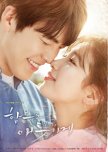
A Problematic Tearjerker...
If you ask for a drama watcher’s recommendations of “ saddest dramas they’ve ever seen”, it is probably likely that you’ll hear or see “ Uncontrollably Fond” ranked somewhere on that list.The series focuses upon successful superstar Sin Joon Young ( Kim Woo Bin) who awkwardly meets his old flame from his youth, No Eul ( Bae Suzy), a producer of documentaries. When their respected careers awkwardly make their paths cross once again, No Eul is surprised to learn how much Joon Young has changed into a shallow and materialistic individual, rather than the kind-hearted person she once fell in love with, however, Joon Young also begins to stumble upon a life-changing truth which may finally ruin his relationship with his former love...
Undeniably, Uncontrollably Fond isn’t the type of drama to watch if you’re looking for something” fun and fluffy” ; the focal point of the series centralises upon terminal illness, tragic love and angst with Lee Kyung Hee’s ( The Innocent Man, Chocolate) screenwriting hoping to tug at heartstrings of viewers , rather than relish in a sweet romance tale (as shown in his more light-hearted works). The show is certainly effective within inflicting heartache onto viewers towards the particular fate of our characters, however, it is still certainly problematic when it comes to characterisation, as well as clearing up the evident inconsistencies which arose in this angst-ridden ride as well.It is important to note that the acting in the show is certainly quite good. Kim Woo Bin and Bae Suzy are undeniably brilliant actors, however, it is fair to say that their characters are tackled interestingly, to say the least.
Bae Suzy’s character, No Eul is undeniably a kind-hearted soul who is passionate about her work and desperately tries to make amends with Joon Young over the course of the series . On the other hand, No Eul often felt too dormant within her actual role and presence as a fleshed-out individual onscreen. Whilst it is important to stress that a show doesn’t necessarily need to go into a whole life story upon a character in order for viewers to “ get to know them personally”, it’s hard to really distinguish or get a grip upon No Eul as a character outside of her “ necessary flashbacks “ and past relationship with Joon Young. Even minor details such as her interests, interactions outside of her workplace and reactions to prominent obstacles over the course of the story , often felt passive and lacking in emotional depth to truly portray her as a well-written female lead.
Then of course there is Kim Woo Bin’s role as Joon Young. Undeniably Joon Young goes through several terrible ordeals even before the main events of the series, which fundamentally shapes his certain outlook upon life, relationships and characters (No Eul, being the evident subject of Joon Young’s changed interactions and feelings). No Eul’s entry into Joon Young’s life again comes nearly simultaneously with his life-changing news. This consequently causes him to try pushing No Eul away, as she becomes his saddening and haunting reminder of a past that he’s tried to reject, and he can never return to.
This of course leads us down two routes of “ problematic” characterisation; the first within Joon Young’s behaviour, and secondly towards this behaviour is inflicted towards the female lead No Eul . It’s important to say that Joon Young’s reactions and attempts to drive No Eul away by flirting with other women, did add a slightly realistic reaction towards the male lead’s scenario. Joon Young is supposed to be only human and naturally intrinsically driven like most people towards rash decision-making.
However, Joon Young’s often anger-driven emotions and reactions towards his situation by throwing things or beginning a screaming match, soon became both frustrating when he began to lash out at times upon No Eul. A lot of fans of Uncontrollably Fond’s pairing often seem to gloss over the fact that ,for the majority of the series, Joon Young was emotionally abusive and physically harassed the female lead upon several occasions ( not least throwing her out of the car in the middle of nowhere, grabbing her arm often without consent and often manipulating her feelings rather than merely being honest).
Again, this is not saying it was “ wrong” for Joon Young to have feelings anger or for the show to touch upon emotional abuse or physical harassment, but it was concerning that the drama neither raised this up prominently as a terrible issue or relationships, and suddenly tried to “ sweeten” this by Joon Young and No Eul’s more “ romantic” feelings before the finale. This sudden transition from Joon Young tossing No Eul out of a car to hugging her several episodes later, wasn’t just nonsensical, but ridiculous in terms of character and relationship progression.Nevertheless, despite the questionable relationship between the two characters, the finale did leave a sucker- punch for viewers’ feelings. Without spoiling too much, it is fair to say that upon reflection the ending isn’t “ sad” per say because of the fate of our characters, but rather the blinded acceptance towards what is happening in their present, rather than their pasts or futures.
Overall Uncontrollably Fond wasn’t a bad show with some well-written qualities of the psychological complexity of coming to grasps with terminal illness, relationships, love and an emotional ending. On the other hand, Uncontrollably Fond had little greater character depth, straying away from cliches and explanations ( not least the “ unexplained illness”) ,a healthily progressive portrayal of relationships and problems of sugarcoating issues of emotional abuse and physical harassment within the main couple as well. As a drama to pass the time and as a tearjerker , Uncontrollably Fond is undeniably a good-binge watch, however, if you’re looking for a show with genuine depth and a well-written relationship between our leads, then look elsewhere because Uncontrollably Fond certainly isn’t the one that you’re looking for.
Vond je deze recentie nuttig?
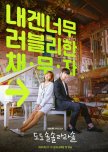
Twinkle, Twinkle But Not A Gem..
The Story; Do Do Sol Sol La La Sol ( roughly translated to ‘ Twinkle, Twinkle Little Star’ from Romanised Korean), tells the story of an affluent girl who is a dreadful pianist, Goo Ra- ra ( Go Ara). When her life hits rock bottom, she ends up running again into the mysteriously hardworking Lee Jae- wook (Sunwoo Joon). Together with Jae- wook and her new friends, Ra- ra might just find the answer to getting her life back on her feet through the kindness of strangers and new love.The Characters; The show offered an odd mix of characters both endearing and lacking characterisation. As our main protagonists go, Ra- Ra was mostly driven as a weeping heroine with little emotional depth. Considering Ra- Ra lost her mother, father and has gone through Hell and Back, there was so much potential for the scriptwriters to induce a level of pity or teaching her character about the realities of life. Instead, any hope for Ra- Ra to be a realistic female lead is thrown out the window in pace of her romance with Jun. Even small actions regarding Ra- Ra by the scriptwriters such as her mysterious multitude of outfits ( and not considering even in the beginning of the show to perhaps sell them to help pay for Jun), the expenses of her hospital fees and her seemingly remaining oblivious to the Doctor and Jun’s secrets, added little to her character. Moving on to our main lead, it’s fair to say that he was perhaps slightly more tolerable for audiences as he seemed to realistically carry emotional burdens upon his back as well as mysterious secrets. Sadly, rather than trying to allow Jun to face his own demons by spending time with Ra- Ra , the scriptwriters tried too hard to add obstacles within their relationship through the strange plot twist near the ending of the show. Whilst this did help for Ra- Ra and Jun to explore their relationship, it seemed just to point out that none of the characters in the show were truly grounded in reality.
Relationships between characters; Perhaps my one appraisal for the show is the Mother- Daughter bond between Jin Sook-kyeong ( Ye Ji- Won) and Jin Ha-yeong ( Shin Eun Woo) . For a show grounded in romance, there was a surprisingly familial turn upon learning that the seemingly daft and flirtatious hair stylist , Jin Sook- kyeong, got a surprising moment of characterisation through learning of her hardships and her actual affection as a single mother for her daughter. Similarly, it was equally sweet that Sook-kyeong, Ha- Yeong and Ra-Ra developed a strong bond between one another as the show progressed. I have a couple of complaints, however, about the need for Sook-kyeong and Ha- yeong to have romantic interests in the show. Whilst there’s obviously nothing wrong with either character having their own love interest, it seemed out of character at times when there could have been more focus upon the characters as individuals. For me, this was seen especially with Ha- yeong. Whilst the scriptwriters dropped the hints, the ending seemed to deny a lot of Ha- yeong’s potential to continue with a successful career.
On other notes, there were other signs of familial love within the show such as Jun and his mother ( Seo Yi Sook) and , the child prodigy, Jae- Min who develops a familial bond with our characters. On a romance level, the show was a bit of a mixed bag. Once Jun’s secrets were exposed it did put a bit of edge for viewers between their relationship, but, perhaps one of the things which didn’t entirely add up for us as viewers, was the revelation towards Ra- Ra not recognising Jun from the past. Whilst it’s natural her memory might’ve been a bit hazy, it seemed a little strange that she didn’t even mildly recognise Jun at the concert hall or at the wedding either. Naturally, there is of course the ‘ second Male lead syndrome’ of the tired Doctor Eun- Seon ( Kim Joo- Hun) . Whilst there were a couple of factors which made Eun- Seon a little more appropriate for Ra- Ra, Eun- Seon came across as a little too forceful of Ra- Ra’s privacy at times, something which struck a nerve with me. The other evident factor was that once Jun swooped in, his “ fanatic feelings” seemed to mysteriously disappear. Whilst the scriptwriters evidently didn’t want to spend hours upon Eun- Seon falling out of love, it was another case and point of bad characterisation that we didn’t get to see Eun- Seon’s reactions as a human being.
Acting; Go Ara struck me as an unusual choice to play a romantic female lead. Typically taking on more gritty or melodramatic styles such as Black and Haechi, it wasn’t that Ara was necessarily bad within playing Ra-Ra, and in fact, exposed herself as an actress by not being typecasted as the action heroine. ( An ironic reversal for most female actresses). On the other hand, to put it simply, , she just didn’t add anything new or illuminating to her role. (Admittedly, this was also the fault of the scriptwriters as well) Moving onto our Male lead, Lee Jae- Wook has really been rising to providence as a romance actor after his appraised role in Extraordinary You. Whilst I wasn’t a great fan of the show, Jae- Wook’s acting did peak my interests as a potentially good actor. It was clear to see that Jae- Wook put his heart and soul into the drama within his role as Jun, however, in a similar manner to Ara, Wook didn’t bring anything new or exciting to his take on the Male lead. (Perhaps a personal thought upon Jae- Wook is that whilst he took the role on within the popular genre of romance, he should explore outwards into different genres in order to explore his boundaries of acting).
OST/ Cinematography ; Whilst the show plays upon classical music and standard panel shots, there was a lot which could’ve been explored with the usage of music and cinematography hand in hand.
Plot thoughts; In all honesty, the actual plot of the drama isn’t terrible. What it certainly isn’t is overwhelmingly impactful, original or intriguing for audiences. The cliches have simply been seen and done before; the sanguine and dippy rich girl who learns life lessons, the hardworking Male lead , illnesses and hidden pasts as well. The biggest fault within playing upon these cliches is that the audiences rarely get to see the characters as human beings, rather than merely plot devices. As a consequence, whilst sugary sweet with a bittersweet ending, the drama was overly unrealistic and easily forgettable for the next Korean Romance Drama succeeding this one. .
Vond je deze recentie nuttig?
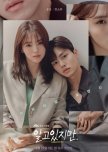
‘Nevertheless’- The Drama That Failed To Reach Its Full Potential.
It feels as though “ mature” tag romance dramas aren’t often taken seriously in K-dramas, but ‘ Nevertheless’ attempts to present things differently. The webcomic-based drama focuses upon the turbulent relationship between art students Nabi ( Han So Hee) and Jae Uhn ( Song Kang) connected together throughout their infatuation with butterflies. However (controversies aside surrounding the allegation case of actor Kim Min Gwi), whilst ‘ Nevertheless’ soared high at times, the drama could often find itself smacked face into the ground with its own problematic flaws also.
Watching the "relationship" between Nabi and Jae Eon play out is similar to getting stung repeatedly by a swarm of killer bees and then falling in a ditch filled of stinging nettles and vipers. Nabi and Jae Uhn aren’t in an overtly healthy relationship . Nabi is revealed to have been a victim of several abusive relationship in the past, and so projects her anxiety into committing herself again into a long-term relationship by seemingly maintaining only sexual intimacy with Jae Uhn. In the first episode alone, Nabi even admits openly to viewers that ‘I don’t believe in fate or love anymore. But this situation, it’s pretty unrealistic’.( Yet secretly yearns for more .)On the other hand, Jae Uhn’s nature is seemingly “ obscured from view”- one minute he happily pines over Nabi, the next he is chatting another girl up, only to pull out serious red flags when he suddenly appear out of nowhere in front of Nabi to “ save the day” .
Of course this is supposed to be the plot device that keeps the main storyline moving . Jae Eon and Nabi are both flawed people who only bring out the worst in one another. (That’s the point. )However, this is also where the drama failed to utilise this storyline to its full potential also. Director Kim Ga Ram may have seemed to think it was a good idea to bog down 20 minutes of screen-time with brooding eye- exchanges between Nabi and Jae Eon onscreen, but having an episode with only
20-25 minutes of quintessential storyline, 20-25 minutes of moody gazes, saucy scenes and then only a brief checkup on subplots isn’t entirely the best format to follow for every episode . Perhaps it wouldn’t have been so bad if the drama had gradually increased the essential storyline scenes as the series progressed, but soon the drama began to lose a lot of its original intrigue an incessant loop of pretty much the same setup where Nabi or Jae Eon would be lusting over the other, a misunderstanding would occur, they’d ghost one another or make the problem worse ( usually hurting one another or someone else in the process), lengthy scenes of pining gazes would occupy screen time, a cut to one of the subplots and then suddenly Nabi and Jae Eon are on “ reasonable” terms again.
Of course this is nothing to do with the actress behind Nabi .Soo Hee really captivated her role well. The slight uncertainty morphing onto her face and a twitch of her hand with trepidation really helped to animate her onscreen persona to life. However, as a character, Nabi’s was seriously poorly-written . The female lead initially starts off the drama as a sympathetic female lead; we are made aware of her experiences early on, and can see how she is falling hook, line and sinker again into a toxic relationship with Jae Eon as she even voices her own awareness that ‘It feels like something new is about to begin. I’m probably not mistaken’. Although where Nabi ultimately failed as a character wasn’t inherently to do with her conflicted feelings between Jae Eon and the softer option with Doo Hyuk ( Chae Jong Hyeop), but her self-depreciation and lack of self-respect as an individual . Yes, Nabi is a victim of abuse and we cannot forget that. However, it is a really irksome fallacy by screenwriters and writers that someone in Nabi’s vulnerable position” can somehow be fixed from years of emotional trauma by being in a " committed relationship ”. Nabi ( at the end of the day) had serious emotional and psychological issues which needed time and healing, not implicating her in order to keep a poorly enforced plot device working .
This isn’t to entirely drag and degrade the series down. The OST was pretty good, and Ga Ram’s cinematography was really mesmerising also. Two memorable scenes of the drama came through how director Kim Ga Ram inter-played lighting and symbolism here subtly- Jae Uhn in the room of butterflies with the door ajar yet all of them trapped with him, and then the open freedom of the meadow with Doo Hyuk and Nabi sat together enjoying the natural world overtly. The creative juices can only run so far into a series, however, before the problems soon dry them up. For example whilst Song Kang is a good actor, he didn’t feel entirely right as Jae Eon . He did certainly captivate the charismatic ambience of the main male lead , but he was honestly a little lacklustre by rarely radiating prominent vitality as his onscreen Casanova persona.
Of course the subplot characters were fairly intriguing in their own right - cool-headed and punk aesthetically adorned Oh Bit Na ( Yang Hye Ji), a good friend of Nabi, and the taciturn Nam Kyu Hyun had a constant “ will they, won’t they?” dynamic to their relationship. However with the controversial scandal surrounding Min Gwi, the producers made a quick and prompt decision to entirely cut out Kyu Hyun and Bit Na’s relationship scenes( as much as possible) during the last few episodes.Effectively this had a detrimental impact upon an important side couple’s development. However, this problem was also found with Sol ( Lee Ho-Jung) and Sol’s repressed feelings towards her blatantly oblivious best friend Seo Ji Wan ( Yoon Seo Ah) ‘s lacking screen time was diminished even further by the focus on the teachers and their” chemistry” in order to make up for lost screen time between Kyu Hyun and Bit Na.It wasn’t bad per say this couple being focused upon , but there were a myriad of variable storylines which were poorly sketched-out or abandoned throughout the drama which could’ve been explored instead such as the mysterious man that Yoon Soo bumped into, exploring Sol’s sexuality and feelings in more detail ( as well as her possible reasons for liking an unlikely person like Ji Wan), Jae Eon’s interactions with his family possibly providing further indicators into his current mind-frame , exploring Bit Na’s friendships as well as her experiences with trauma and even Jae Eon’s -ex’s story were all beyond wasted potential. The ending only provided this as case and point by failing to tie off loose ends as well as justify Nabi’s chance to heal and gain self respect.
So, is ‘ Nevertheless ’ actually worth watching? The delivered result of ‘ Nevertheless’ will ultimately vary for a lot of drama fans. Many will likely praise the more explorative and daring promiscuous themes in the drama, as well as the art house-style cinematography, the alternative OST and most of the cast. However, it is easy to see where ‘ Nevertheless’ also fails to reach the mark ; the pacing was off even at the best of times, the turbulent relationships ( including the side couples ) rarely met their full-potential and the main characters weren’t given enough opportunities to escape their one-dimensional shells as plot devices. Certainly not a cataclysmic drama, but sadly failing to reach its full potential also.
Vond je deze recentie nuttig?
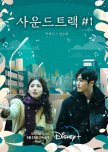
Why Did You Come to My House
26 mensen vonden deze beoordeling nuttig
Soundtrack #1; A Discordant Love Story…
The recent venture of juggernaut industry company Disney into the world of K-dramas has marked an onslaught of mixed reception from viewers and critics alike. Nevertheless with a recent investment by the international streaming service Disney+ into copartnership and copyright deals with South-Korean producers and companies, it is hard to ingore the recent presence of Disney within the world of K-dramas. Indeed, the latest series to come out in selected countries from the streaming service, ‘ Soundtrack #1’, is no exception. A stipulated love story between two friends, ‘ Soundtrack #1’ is a short and benign romance drama which while bittersweet in parts, could often feel contrived by its setup and characters.The narrative of ‘ Soundtrack#1’ focuses upon two close friends. Lee Eun Soo ( Han So-Hee- ‘ The World Of The Married’, ‘ Nevertheless’ and ‘ My Name’, ) is an aspiring lyricist. Nevertheless despite having the ability to pursue her dream job, Eun Soo is struggling to find a source of inspiration and has hit a difficult period of writer’s block.
Thankfully Eun Soo has found comfort and support by relying upon her friend and photographer Han Sun Woo ( ZE:A’s Park Hyung Sik-‘ The Heirs’, ‘ Strong Girl Bong Soon’ and ‘ Happiness’). However as Eun Soo and Sun Woo attempt to navigate their current relationship, it becomes apparent that romantic feelings between friends aren’t always so easy to navigate.
‘ Soundtrack #1’ came together as the byproduct of screenwriter Chae Yoon (‘ She Would Never Know’) and director Kim Hee-Won ( ‘ Fiery Priest’, ‘ Vincenzo’ and upcoming series ‘Little Women’). While Hee-Won was certainly not treading upon unfamiliar ground with the romantic melodrama ‘ Soundtrack #1’, it certainly seemed an intriguing choice to pair up Hee-Won, a director known famously in recent years for her witty slapstick comedy-style and revenge dramas, with screenwriter Chae Yoon, who is associated with the lighthearted romance series ‘ She Would Never Know’ for ‘ Soundtrack #1’. Nevertheless despite the eccentric pairing choice, it is arguable that the contrasting idiosyncratic styles between screenwriter and director helped to bring a certain flair to the miniseries.
Perhaps it is important to establish that ‘ Soundtrack #1’ doesn’t push boundaries within its initial setups and plot premise. It is a basic and conventional romance story. In particular it was evident to see the influences of screenwriter Chae Yoon within ‘ Soundtrack #1’. The similar rhetoric of the male lead attempting to escape the friend-zone with his lifelong friend and crush, convoluted feelings developing between close friends and of course repressed feelings causing complications along the way were certainly similar to Yoon’s previous screenplay .
Nevertheless it is hard to deny that despite the lighthearted angst of ‘ Soundtrack #1’, there was a distinctive trait of interminable melancholiness and yearning within ‘ Soundtrack #1’. Director Hee Won’s classic touch of internal and external conflict have become reoccurring themes throughout several of her projects. Although ‘ Soundtrack #1’ may not possess a tale about a character with an eventful past or a personal vendetta, it certainly did highlight the complications that can arise within feelings, careers and between contrasting elites . ( For example Sun Woo’s internal disillusionment and fixation upon his work and coveted feelings for the female lead helped to perfectly contrast Han So-Hee’s external struggles and uncertainty as a songwriter.)
Then of course there’s the discussion surrounding casting choices. Han So-Hee has admittedly triggered mixed-responses amongst viewers and critics alike for her initial performance as main female lead Eun Soo. The actress’ previous career trajectory has seen her star in a mixture of different genres and styles with her recent performance( at the time of writing) in the revenge-thriller ‘ My Name’ being widely praised.
Nevertheless it is hard to deny that despite Han So-Hee’s talents within certain roles and genres , i her performance within ‘ Soundtrack #1’ could often feel somewhat lacklustre with line deliverances and emotional intonations initially. So Hee’s performance did admittedly improve somewhat in the latter-half of the miniseries with a level of heartache being conveyed within her onscreen persona but it is perhaps fair to say that Soo Hee’s performance could feel somewhat lacking at the best of times.
Costarring alongside actress Han So-Hee was ZE:A’s Park Hyung-Sik as main male lead Han Sun Woo. Hyung-Sik has certainly gained a lot of experience within the world of rom-coms and melodramas and this certainly did allow the actor to approach his onscreen role with an easygoing charm. However despite Hyung-Sik’s talents, it is difficult to deny that there were times where the actor could feel somewhat stilted by certain dialogue deliverances .
Then of course there’s the discussion surrounding Hyung-Sik and So-Hee’s potential onscreen chemistry. There was certainly nothing wrong per say with Hyung Sik and Soo Hee’s onscreen dynamic. Although there was an initially inconsistent start , the onscreen chemistry was decent enough. However it is still hard to ignore that while their potential was certainly not unwatchable it rarely felt coherently natural. Perhaps it can be said that these problem boiled down to the flaws of limited screen time . Throughout the duration of the series, an onslaught of variable acting performances by the main cast in addition to the limitations of a restricted time frame rarely helped to allow this onscreen dynamic flow naturally.
Under the directing leadership of Kim Hee-Won, it is clear to see that the four-episode formula and short episode lengths for ‘ Soundtrack #1’ was a double-edged sword.
Of course, it naturally enforced the narrative to be compact and concise within its restricted time frame and duration length. The series was rarely caught up in the trap of being lost down the rabbit hole of an abundance of unnecessary subplots and irrelevant characters. ( Instead these subplots were only briefly touched upon such as So Hee and Sun Woo’s work careers.)
Although there were supporting characters within the series such as Composer Kang Woo Il ( Kim Joo Heon-‘ It’s Okay Not To Be Okay’, ‘ Do Do Sol Sol La La Sol’ and ‘Juvenile Justice’), Sun Woo’s business partner Yoon Dong Hyun ( Yoon Byun Hee- ‘ Love In The Moonlight’, ‘Mr. Sunshine’ and ‘ Vincenzo’) and several surprise guest appearances ( including Yoon Seo Ah, Seo In Guk, Lee Jung Eun, Park Hoon and Park Min Jung), these secondary characters were rarely featured beyond their necessary face value in order to trigger or intensify certain plot events.
On the other hand while a restricted time space did allow the narrative to be more cutthroat with its themes and storyline, it did certainly highlight some specific drawbacks also as a consequence of this compact formula . A limited time frame rarely allowed viewers to see the onscreen relationship between characters being explored beyond their necessity to the plot, hardly allowing opportunities for ‘ Soundtrack #1’ to subvert all of its cliches or experiment with new formulas. Naturally,this could sometimes lead to certain narrative points such as the later development of Eun Soo and Sun Woo’s relationship feeling somewhat rushed.
When it came to filming and production it is certainly noteworthy to point out that Hee Won’s stylistic approach to the series helped to captivate the journey and feelings of characters throughout.
Slick editing and glossy gradients helped to animate scenes to life with specific palettes and tones popping out onscreen. Additionally this helped to differentiate between idealism such as through the eyes of Sun Woo as well as the stark reality presented by Eun Soo throughout the series. ( Perhaps one of the most memorable contrasts can be found in the first episode of ‘ Soundtrack #1’ during Sun Woo’s photo shoot of Eun Soo. Through the literal lens and vision of the male lead, Eun Soo is adorned in a flowing white shirt and smile, giving off an ethereal ambience and air of confidence. In a contrasted scene, viewers are shown reality from the perspective of Eun Soo, adorned in drab clothing and hunched over a computer screen.)
With the title name such as ‘ Soundtrack #1’ it should come as no surprise that the series is heavily invested within using imagery and the OST synchronically. For ‘Soundtrack #1’, this came through an onslaught of schmaltzy and sugary love ballads and solo tracks.
Of course for a series predominantly focused upon young love and relationships, this isn’t an entirely odd choice. However rather than selecting an impressive score for the series or at least choosing songs than could’ve heavily fomented emotional and tear jerking scenes, ‘ Soundtrack #1’ was caught in a slight rut with some of its chosen tracks being unimpressive. Perhaps the few exceptions to this can be found through lovelorn ballad “ Wanna be your lover”[ “이젠 친구에서 연인이 되고 싶어”] by Monday Kiz , LeeHi’s upbeat track “We'll Shine Brighter Than Any Other Stars” [ “우린 어떠한 별보다 빛날 거야”] and Prerettiest One’s acoustic guitar song “ Standing Egg” [“ 너만 예뻐”].
‘ Soundtrack #1’ is a series which does little to diverge away from the expected tropes and basic setups of romance dramas. Although there an were certainly some questionable acting moments at times and the limited time frame for the narrative often led to events feeling rushed, ‘ Soundtrack #1’ was surprisingly able to attain a balance between lighthearted fluff and bittersweet angst. Additionally, the collaborated efforts of Kim Hee-Won and Chae Yoon allowed the narrative to explore an idiosyncratic perspective by both director and screenwriter upon romance and repressed creativity. Although perhaps ‘ Soundtrack #1’ was let down at times by its OST and pacing at times , the four-episode miniseries certainly will offer viewers with a decent and quick binge-watch.
Vond je deze recentie nuttig?
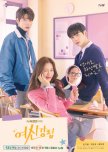
True Beauty; “ A Love And Hate Relationship”
Let’s be honest. The original webtoon of “ True Beauty” has always had either a “ love and hate” relationship even amongst fans; the main heroine has little character growth, her relationships and decisions are questionable ,and the storyline hits a major snag after the halfway point as well.Respectfully we should always try to take a step-back when watched a drama adapted from an original webtoon, novel or a reboot as a standalone production; writers often make very different decisions ( whether for better or worse) than the original creator with either storyline, themes or characters, and it is certain to say that writer Lee Shi Eun , did make some necessary and unnecessary changes in TVN’s latest eponymous drama adaption of the webtoon.
The biggest change to note is the predominant setting of the drama on our female lead Lim Ju Kyung ( Moon Ga Young) in high school for a major proportion of the series. Whilst naturally this did see the series brush over some notably darker issues of bullying, abuse and academic pressure, this also gave writer Shi Eun more playing ground with the joys and delights of intrinsic “ teen angst” and overused teen drama cliches. From the evident love interests of Suho ( Cha Eun Woo) and Han Seo Jun ( Hwang In Yeop) for our female lead, to other issues of bullying and love rivals on top, Shi Eun pulls at all the stops to make True Beauty, an overly cliche and “ sugarsweet” romance drama with more and more ridiculous tropes and scenarios as the episodes progress.
Nonetheless it is wrong to write off that the show didn’t do anything well either, in particular towards our actors.
Whilst Ga Young did have a couple of questionable acting moments, for a major proportion of the series, she perfectly captured the awkwardness, humour and more angst-ridden moments of our female lead. Similarly whilst Eun Woo is certainly a fairly veteran actor within romances , some of his past “ leading man” performances have come off as a little “ wooden” and lacklustre . It wouldn’t be lying to say that his role as Suho doesn’t not stand out as much as some of his previous works , however, it is prominent that Eun Woo did add a level of genuine heart and comedy to his role as Suho as well. Notably rising star Hwang In Yeop ‘s performance as Seo Jun has caught a lot of attention by viewers and fans with a surprising level of awkwardness, emotion and angst behind Seo Jun as a fleshed-out character, something which certainly must be given praise for as well.
This of course does move on to the show’s tackling of characterisation throughout the series, with some notably mixed results by the ending . The biggest elephant in the room must be addressed through the character of Kang Soo Jin ( Park Yoo Na). Similar to her original webtoon character, Soo Jin is sighted as a “ natural beauty” who lives in an abusive household and has a complicated relationship with Su Ho, however, the most notable change from the webtoon occurs within her 180- degree personality change in the beginning from a conniving social media influencer in the webtoon , to a studious and angelic friend for Ji Kyung during the drama. Honestly, Soo Jun’s character introduction had a lot of potential in comparison to her webtoon counterpart , with a seemingly strong of morality and strength by notably helping Ji Kyung out from an awkward situation during their journey to school on the bus before even getting to know her.
As most romantic cliches have proven, however, female animosity is the adored cliche of screenwriters, and it soon provides a downwards slope for Soo Jin as both a character and an individual as well. It is important to advocate that it is not necessarily Soo Jin’s feelings towards Soo Ho which make her suddenly a “ terrible person” over the course of the series, but rather how screenwriter Shi Eun unevenly mismatched Soo Jin’s later actions and decisions ( especially towards Ji-Kyung) near the finale.Whilst Shi Eun attempted to amend this in the final episodes, the damage had already been done quite irrevocably, possibly making Kang Soo Jin, the epitome of writing a terrible second female lead.
On a more positive note, however, the most prominent praise for characterisation must be given to Ju Kyung’s development as our heroine ( especially in comparison to the webtoon). Although it was a little painful that Ju Kyung did not talk out about her more dire decision in episode 1 to her family and still retained oblivious naivety at times ( stereotypically to Soo Jin’s feelings) , she did gradually begin to learn to grow more self-confidence and respect for herself as an individual ; something which is an important stage for any healthy relationship.
Equally Suho upon first glance, was intrinsically cliche and effectively a “ Mary- sue” of the drama and webtoon world ; overly” good-looking” , stylish and intelligent, however, alongside Seo Jun, Suho had some notable character growth as a character passed off as “impassive and aloof”, to being a notably non-judgemental individual towards physical appearances, but rather assessing someone based upon their individual personalities and actions . ( Perhaps the one aspect which would have intrinsically explained this more to
watchers, would have been to have the included the key aspect of Suho’s background as a ‘ half Japanese-Korean’ , resulting in him often being bullied from a young age and determining physical appearance as meaningless ; something clearly left out of the show in order to avoid controversy by Shi Eun.) From opening up about some aspects of his difficult past and childhood, his buddying friendship to blossoming feelings for Ju Kyung as well as refreshingly partially- reconciling with Seo Jun, did allow Suho to have some decent characterisation(despite the array of cliches that the show threw in our way) .
So, this leaves us on the big question; is it actually worth watching? True Beauty will always have a love-hate relationship with drama and webtoon fans - the storyline is sugary sweet ( with little sense of realism or grittiness despite the “ angst” apparent in the storyline), the tropes overtake actual story investment and some of the characters are fairly abandoned by the ending of the drama. Nevertheless there are some good things to note about the show; the OST is fairly catchy, the cast help to flesh- out all of our characters and the majority of our main protagonists have some deeper character development over the course of the series. Therefore it is fair to say that it really depends what you are seeking from this show; a cute, fluffy and unoriginal teen drama which you can binge watch? Then, definitely. Something to actually invest time into an original portrayal of the difficulties of romantic relationships as students? Then, probably not as there are certainly better dramas out there to consider.
Vond je deze recentie nuttig?
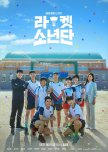
A Badminton Drama, Which Needs More Training…
Sports-related K-dramas are few and far between, and the delivered results of these dramas can often be hard to truly take seriously. ‘ Racket Boys’ is no exception. The drama has arisen to a lot of criticism respectfully for certain racial stereotyping, badminton stances and the exact depiction of the drama’s messages. However, it is wrong to entirely point out that “ Racket Boys” does keep the ball rolling with certain elements of the sport and screenwriting either.
Before delving into reasons behind more mixed-criticism for the drama, let’s start on a positive note with what kept viewers entertained . The drama is pretty lighthearted. Whilst it does delve a little beyond the surface into darker territory with Hae Kang's father Yoo Hyeon Jong (Kim Sang Kyung)’s struggles and his mountain of dept as well as more heartfelt moments , the comedy was pretty silly for the most part , the friendship factor for Hae Kang ( Tang Joon-sang) with captain Bang Yoon Dam (Son Sang Yeon), hipster wannabe Na Woo Chan (Choi Hyun Wook) and maknae Lee Yong Tae (Kim Kang Hoon) the good performances by the cast, the romantic elements of the storyline and even the occasional cameo appearances by actors ( such as Park Ho San, Park Hae Soo, Kim Sung Chul, Kang Seung Yoon and Lee Kyu Hyung) from screenwriter Jung Bo Hoon’s previously commercial and critically-acclaimed work ‘ Prison Playbook’ (2017) were surprisingly endearing touches.
Another thing which seemed pretty enticing for viewers was that director Jo Young Gwang had done some evident homework into Badminton terminology such as '4U' (to indicate racket weight) and even mentioning the ideal string tension for beginners to badminton of 26 pounds. Adding to this was the depiction of female players of the sport, with a girl’s team at the middle school, whose coach, Ra Yeong-ja (Oh Na-ra) is renowned for her fierce teaching methods shared some more diverse lighting on the game.
Less impressive was the drama being its own worst enemy at times. The camera work could often be dull when actually depicting the game being played, and the usage of badminton shot positions by Hae Kang's father Yoo Hyeon Jong (even as a disgraced player) was badly depicted at the best of times . Adding to this pile of problems was the episode lengths. Averaging around 90 mins, there’s a lot to cram into these episodes and the skip button can often look more appealing than actually watching the drama at times. The stereotypical cliches here also drag on when Yeong-Ja and her two players are forced to move in with the Yoons and the rest of the boys’ team as the “ will they?, Won’t they?” chemistry lingers between evident romantic setups here. Oh, boy. Then there’s the controversy with racial stereotyping here also with depictions of “ foreigners” being presented as flaky or fickle, such as the cameo appearance of Black exchange student Johnathan( himself) , the obvious “K-pop fan “ ( who disappears and is never mentioned again pretty much because he is no longer relevant to the plot), and then the questionable depiction of the Indonesian team also.
Controversy aside the comedy factor is dependent on personal taste, rather than being universal. It is silly, rather than cleverly written but some may enjoy the running gag of Oh Mae (Cha Mi-kyung), the village “grandma” and her antics, whilst others may view at as distasteful and a poor screenwriting excuse for Hae Kang to learn the value of the “ unique” personalities personalities of the countryfolk living there,and nothing else. Yet in between these more questionable screenwriting, the drama does have surprisingly heartfelt moments here also, like when Hae-kang realizes that neither Oh Mae or her husband are literate , and so he helps her with the remote to her TV and sets up a way she can video call her grandson.
Overall, “ Racket Boys” isn’t a bad show per say. The acting is pretty solid, the sport depiction isn’t bad and the lighthearted moments are fairly sweet but it is very much dependent on what you are looking for. The comedy really isn’t everyone’s taste with its goofy gags ,often stealing away from the more profound moments of the drama and the tropes can grow tiresome and predictable.There were times where it felt as though ‘ Racket Boys’ struggled with balancing out the comedy and drama factors due to episode lengths, and would’ve flourished more as two separate shows rather than as a K-dramedy . However if you’re just here for some laughs and a couple of “ aww” moments during a binge-watching session ( rather than the central storyline) in order to disengage your brain from more serious and complex storylines, then you’ll likely enjoy it.
Vond je deze recentie nuttig?
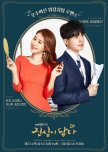
Light And Sugary Sweet, But Will It Truly ” Touch” Your Heart.?
There are probably three main factors which will drive watchers to picking up this drama.Let’s not kid ourselves, though. The majority of watchers will probably be drawn to this series for our main costars Lee Dong Wook and Yoo In Na performing again as starred-crossed lovers after their renowned onscreen chemistry in the hit-drama Goblin; The Great And Lonely And Great God (2016-17).
However, here’s the biggest question that anyone watching this drama and looking through a series of often biased verdicts by watchers praising it with “10/10”; is it actually worth watching ?
Perhaps the most important thing to summarise about ” Touch Your Heart" is that the majority of the show is an easy-going, romantic comedy.The drama follows actress Oh Yeon Seo (Yoo In Na) who had rose to fame because of her enthralling innocent look, which made her the crème de la crème of commercial films or advertisements in South-Korea. However despite desperately yearning to be taken seriously as an A-list actress, she was widely critiqued for her bad acting.
Unfortunately, she got caught in a drug scandal with a big business tycoon, which damaged her career and forced her to off the grid. Two years later, Yeon Seo’s reputation and name is still being dragged in the mud by the controversy with no solid acting offers or contracts, but she continued to lift her head up high. Then one day, she discovers a drama script for another actress in their agency, and becomes infatuated with the premise, fantasying about taking up the role as a lawyer. Convincing the screenwriter to cast her despite initial rejection , the writer finally acquiesces under one condition ; Yeon Seo has to prepare for the role by working in a law-related job for three months. This is easier said than done, however, when Yeon Seo starts off on the wrong foot with the seemingly stoic and straightforward top lawyer at the company, Jung Rok ( Lee Dong Wook). Yet as Yeon Seo and Jung Rok begin to bicker and run into predicaments, both main leads soon find their hearts being melted by one another’s love...
A concept such as ” Touch Your Heart" can easily grow tiresome by the archetypical characters and cliches because it is not entirely unique in itself. Admittedly, this became evident at times within the show becoming enthralled with its own treasure trove of cliches, however, its wrong to entirely dismiss that there was nothing inherently enjoyable about the formula either. The majority of characters ( including secondary ones ) were enjoyable and although they often took time to grow close towards, they had time to sometimes grow outside of the more evident labels enforced in the beginning of the show.
The main female lead Yeon Seo did seem to ring warning bells initially of going down the " ditsy goddess” trope early on in the drama. Whilst Yeon Seo could often be prescribed to the previous trope at times , she was often a loveable character by her genuineness, intellect , resilience and Yoo In Na’s added charm. Lee Dong Wook’s chosen role as Jung Rok may rise eyebrows by his straight-laced role again as the ” stern and abrasive male lead ” ( similar to Goblin), however, Dong Wook seemed to be able to capture Jung Rok’s journey out his shell and development as an individual with emotions and feelings, especially regarding his relationship with Yeon Seo.
Perhaps the one refreshing element of their bond came through defying unhealthy tropes . Yes, there relationship was cliche-ridden by being founded upon the ” opposites attract” and ” rivals to lovers" archetypes , but as their relationship developed, it became apparent that they were able to grow out of the shadows of falling into the territories of ” romanticised” emotional abuse and gaslighting. The couple soon began to grow on mutual respect as they were able to smooth-out misunderstandings by Jung Rok’s brusqueness and Yoon Seo’s emotional honesty .
Even our secondary couple consisting of Lawyer Choi Yoon Hyuk (Shim Hyung Tak) and Lawyer Dan Moon Hee (Park Kyung Hye)was oddly entertaining. Their pairing could could have easily blown into being poorly-sketched and tiresome by the cliches of their stereotypical contractual relationship and full-on personalities , however, beyond the stereotypes of being one another’s ” adversaries ", Yoon Hyuk being a " spoilt mama’s boy" and Moon Hee falling for her looks, they did have some genuine heartfelt moments which helped to fortify the characters as individuals.
On one critical note, whilst the storyline revolving around the prosecutors Jung Rok’s close friend and roommate Kim Se Won (Lee Sang Woo) and Yoo Yeo Reum (Song Sung Yoon was necessary to some extent for plot development , their associated storyline did drag on due to an overexposure with screen time . The friendship dynamic between Se Won and Jung Rok of course was heartwarming in parts, however, having intrigue around Se Won and Yeo Rum as individuals was minimal due to lacking development and an overuse of cliches dragging these characters( in some circumstances)as dull plot mechanisms.
Overall, ” Touch Your Heart" is an entertaining drama- formulaic in parts, with a sprinkle of angst but mostly topped with a lighthearted viewing experience for watchers to help take your mind off heavier subject areas. The cast undeniably were brilliant for the most part ( although though there were some questionable line deliverances) by helping to bring the characters to life. Even the easygoing OST helped to warm up scenes and add a spark to Lee Dong Wook and Yoo In Na’s fairly good acting behind an enjoyable and heartfelt romance onscreen. If you’re a fan of cute and fluffy romantic comedies with a touch of humanity, or you desire to see new life being breathed into certain old cliches, then ” Touch Your Heart" is certainly for you.
Vond je deze recentie nuttig?























